Life After Surgery

Bariatric surgery has put you on the right track to improving your health and your quality of life. However, you must also do your part and make some important lifestyle changes, such as developing new eating habits and exercising regularly. These important lifestyle changes are crucial to your success. Refusing to make these changes and returning to your old habits can sabotage your investment for a healthy life.
Four to six weeks post-op instructions:
Do’s and Don’ts
Do’s
Eat every 2-1⁄2 to 3 hours
Have approximately 45 grams of protein a day
Take vitamins and minerals with iron and calcium
Call if you experience nausea or vomiting
Dont’s
Skip meals
Drink carbonated beverages
Swallow big pieces of food
Eat too fast
Drink 30 minutes before or after a meal
New Habits
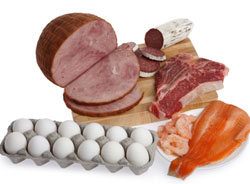
This surgery limits the amount of food that you can eat. During the first few months after surgery, you will be limited to 2 ounces, or 4 tablespoons of food per meal. Thus, it is important that you eat every 2-1⁄2 to 3 hours. The amount of food you are able to eat will gradually increase but should never exceed a child-size portion.
As you gradually begin to introduce soft solid foods into your diet, you will need to decrease the amount of juices and nutritional supplements. There are 2 reasons for this: the first is that these liquids are high in calories. The second is simply that it is healthier to eat solid foods. Be sure to eat slowly to give your small pouch enough time to digest food. Chew slowly and pause between bites and never swallow big pieces of food. Rushing your food can cause cramps or nausea.
Your primary goal is to eat foods with the highest possible nutritional value. Thus, it is important that you always eat protein first. You must have approximately 45 grams of protein a day.
Proteins come from foods such as chicken, eggs, fish, cheese, and yogurt. Avoid eating foods that are high in fat or sugars because they are hard to digest and may cause “dumping syndrome” which is characterized by cramps, flushing, increased pulse rate, weakness and diarrhea.
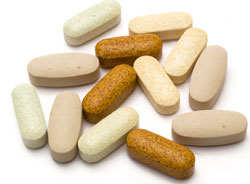
You must also take a multi-vitamin with calcium and iron everyday. You may take a chewable multi-vitamin, but if you choose to take a pill, you must crush pills or dissolve them in water or juice. In the first few months after surgery, taking a multi-vitamin will help you get the proper nutrients needed to maintain muscle tone, skin elasticity and to minimize hair loss. However, you will need to take one a day for the rest of your life to ensure that you get the proper nutrients needed to maintain good health.
Frequently Vomiting is Not Common Nor Normal

If you experience nausea or vomiting, have NOT eaten a large amount of food, and the conditions persist, please call my office. We will order studies to determine the cause of the condition. Also, call my office if you feel weak, lack energy, or lose hair.
Think Before You Drink
Apart from developing new eating habits, you also need to develop new drinking habits. You need to drink 64 ounces of fluid per day to maintain hydrated, ensure proper weight loss and good health. Because your stomach size is so small, you have to take small sips frequently throughout the day.
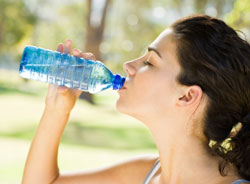
Never drink water or any beverage during or within 30 minutes before or after meals.Never drink carbonated beverages. The carbonation causes the new stomach pouch to stretch and become larger.Avoid alcoholic beverages. They are often high in calories and are hard on your stomach.
Soft Solid Food List
The following list is a guideline. Most foods that have a soft consistency will more than likely be tolerated. Gradually begin to introduce soft solid foods into your diet. Try new foods, but only one per meal. Begin with one tablespoon and wait to see how you react to it. Different people react to different foods. If you have a bad reaction to a food, try it again next month. A food that may have been intolerable one month may be okay to eat at a later time.

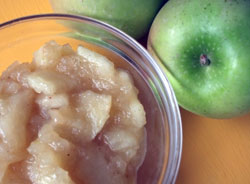
At this point, you will still be losing weight at a rapid rate. So, your primary objective is to eat foods with the highest possible nutritional value. Remember, this surgery is only part of the treatment for obesity. Your success depends on following the guidelines and developing new eating habits. Yes, YOU CAN DO IT!
In addition to the foods on the LIQUID DIET LIST, you may now eat the following foods:
applesauce
canned fruit, packed in its own juice (except pineapples)
fruit, ripe and peeled
melon (watermelon, cantaloupe, honeydew)
canned vegetables (except corn, lima beans, English peas, and spinach)
cooked vegetables (except broccoli, cauliflower, cabbage and those listed above)
cooked beans (pinto, kidney, navy, and black). However, most patients do not tolerate beans.
cereal after softening them in skim milk (1⁄2% or 1%)
cream of rice
oatmeal
cottage cheese
at free or low fat yogurt
low fat cheese, NOT MELTED
sliced low fat luncheon meat like chicken, turkey, or ham
canned tuna or salmon which may be mixed with low fat mayonnaise
eggs or egg-beaters. Scrambled or soft boiled but NO HARD BOILED EGGS
low fat or fat free crackers
low fat or fat free soups
flaky baked fish, NOT FRIED
mashed or baked potatoes, NO SKIN
Liquid Food List
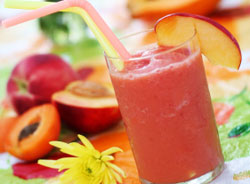
protein shakes, soups, or protein supplements such as Optims, Boost, Ensure Light, Slimfast, Nestle’s SweetSuccess, Carnation’s Instant Breakfast, etc. Healthwise products are available in creamy soups and gelatin and are available at my office – just ask for some.yogurt – low in sugar and low fat / fat free. Be sure to remove all pieces of fruit.
skim milk
broth – chicken, beef or vegetable.
cream soups – low fat / fat free. Remove, strain or blend any CHUNKS of solid food.
cream cereals – prepared very thin into an almost liquid consistency.
grits – prepared to a very liquid consistency.
baby food – remove any chunks of food.
fruit juices – avoid those high in acidity. Apple and grape juice are the best choices.
Gatorade or other nutritional drinks. Watch for sugar content.
caffeine free tea or coffee
JELL-O brand gelatin and puddings have little or no nutritional value, so use them sparingly.
sugar free popsicles, low fat / low sugar ice cream or low fat / low sugar frozen yogurt.
Foods to Avoid

foods high in fat or sugar
bread, rice, or pasta. Most patients have difficulties digesting these foods in the first 6 weeks
foods that are in a casing: hot dogs, sausages, etc. The casing is hard to digest.
spicy or hot flavored foods
shell fish or shrimp
apples, oranges, grapefruit, pineapple, and grapes. Apples are not a soft solid food unless they are cooked in juice or water. The membranes in oranges and grapefruits make them difficult to digest. Eat only fruits which are ripe and remove the peels.
